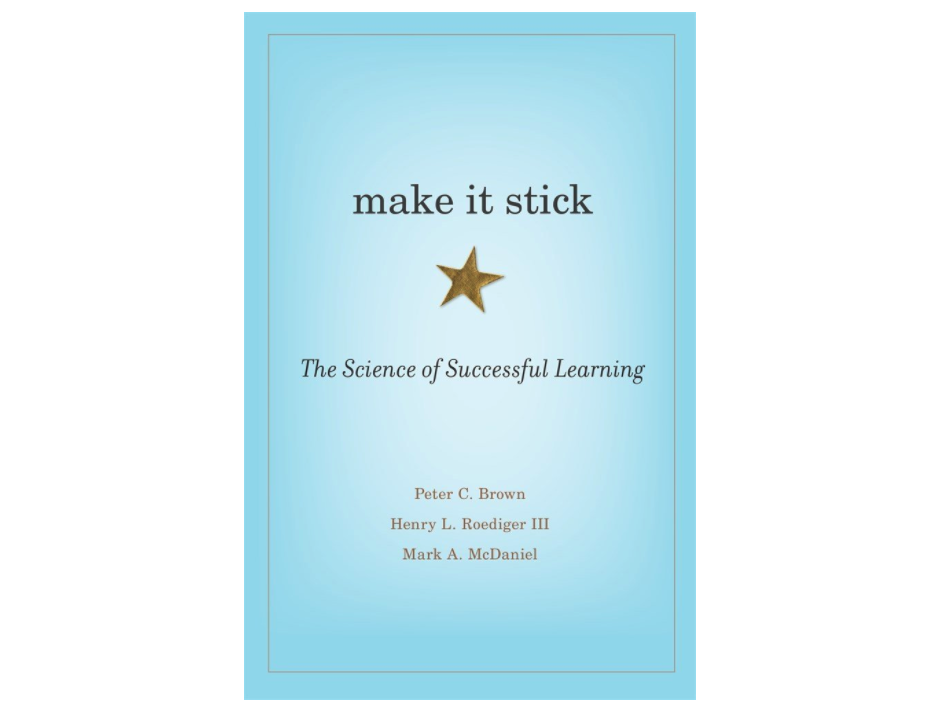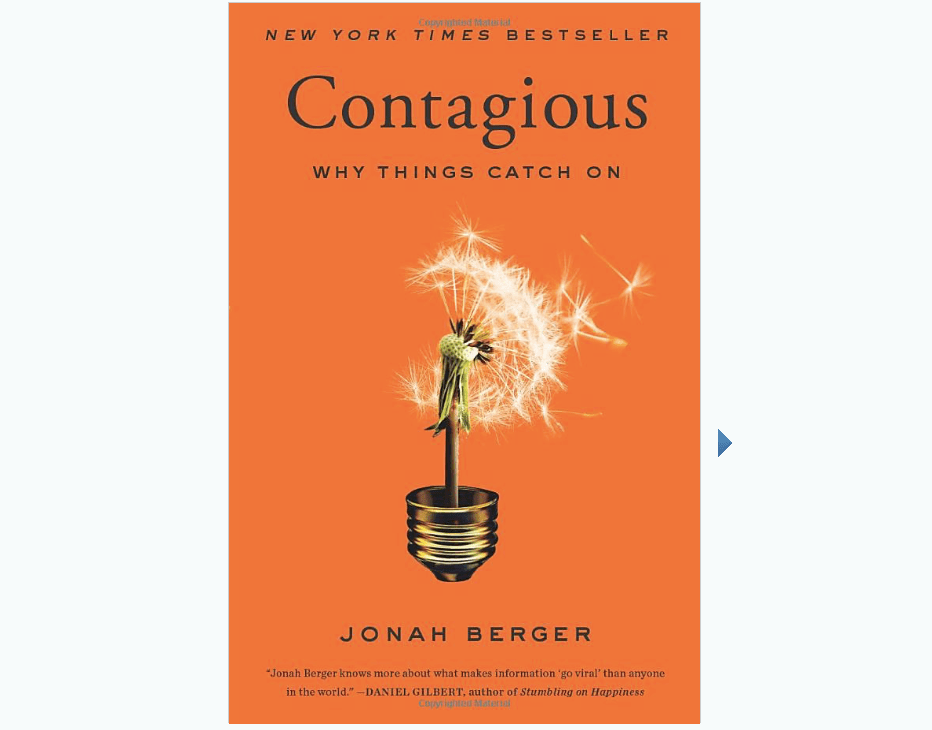Notes
Chapter 1: learning is misunderstood
Bad advice:
Repetition - to repeat what you need to remember
Doesn’t work for durable learning.
Repetitive exposure doesn’t build memory or learning!
Doing multiple readings in close succession is a time consuming study strategy that yields negligible benefits at the expense of much more effective strategies that take less time.
Repeated reading provides ILLIUSION of mastery.
Don’t waste time highlighting -underlining, and rereading.
Things that work:
- Rephrase in own words
- Converting main points into series of questions then answer them later
- Relate to something outside the subject
Testing:
-practicing active retrieval of learning to strengthen memory
-tells you what you know and don’t and can double down on what you don’t
Chapter 2: to learn, to retrieve
Reflection is a powerhouse habit that allows you to retrieve info and form new connections. (Journaling tool)
The testing effect (the retrieval practice effect)
Retrieval tightens the knot and with each retrieval the knowledge is able to be recalled quicker and quicker
Repeated retrieval can embed knowledge so deep that it becomes reflexive
Rapid testing (retrieval) that is spaced out in intervals should be worked into any successful curriculum. 3 in a week for example.
Quizzes/testing should be scheduled and known for students - pop quizzes are counter productive.
Giving detailed feedback to wrong answers increases retention, also delaying the feedback briefly increases retention even more.
Don’t do frequent interruptions for feedback immediately, delay it and allow people to make mistakes.
Delayed feedback makes the retrieval spaced out which improves retention
Principle: Where more cognitive effort is required for retrieval, the retention improves the most.
Rename “tests” or “exams” to “retrieval’s” or something more fun
Chapter 3: mix up your practice
Myth of massed practice: single minded practice of one thing at a time going 100%.
Practice is far more effective when it’s spaced out, interleaved with other subject learning, and varied.
Interleaving is unpopular and seldom used because it feels sluggish but the research shows it improves retention long term.
Massed practice feels more productive, and it is with short term retention, but long term durable learning and mastery is best improved with interleaving.
Develops your ability to look at a problem and discern which tools/principles you need to use. This skill is built with interleaving and problems that pull multiple real life themes. Blocking or mass practice doesn’t build this skill.
Varying practice:
Improves ability to identify principles and transfer learning to other situations. Among athletes, massed practice has been the rule. “Muscle memory”. However varying practice is growing.
Developing sorting(discrimination) skills:
Discriminating/sorting between problems and applying right context and principles to the problem. The ability to look at a problem and discern which tools/principles you need to use. Ability to define “what kind of problem is this and which tools will I need to use?”.
Interleaving enables better discrimination skills.
- Learning concepts versus memorizing features.
Simulators/experiences
Training/learning should simulate/integrate the experience that you’re preparing for as much as possible.
How to structure reflection as part of training: daily summarize what you did and reflect on how you can do that better next time/how it could apply to another vertical in your life?
Habit of reflection is the best for learning:
What happened, what did I do, how did it work out, what would I do differently next time?
Chapter 4: embrace difficulties
Encoding- Brain converts sensory perceptions into electrical and chemical changes that form a mental representation of the patterns you’ve observed.
Consolidation- the process of strengthening information for long term learning
Sleep helps memory consolidation
Durable learning requires 2 things:
- Anchor material so it transfers from short term to long term embedding
- Associate material with diverse cues that makes us adept at recalling later
People learn better in the long term with varied training vs blocked single focus training.
—Example: group A batting practice with 45 pitches varied between curve ball, fast ball, and change up at random vs. practice w 45 pitches that do 1-15 curve ball 16-30 fast ball and 31-45 change up.
—Higher difficulty and less results in the short term
—The skill they’re actually building is discrimination and sorting
Certain kind of interference is good:
Lecture mismatching text book passage produces better recall over text
Unsuccessful attempts to solve a problem will encourage deep processing of the answer when it’s later supplied. Aka failing is good.
Write to learn as a learning tool: Write a paragraph/summary of concepts and elaborate on them / reflect on how they apply/integrate into things you already know or real life examples everyday.
Fear of failure reduce working learning capacity because it expends energy thinking/worrying about if they fail.
Intellectual abilities lie to a large degree in people’s own control and ones knowledge potential is directly proportional to how open they are to failing and how many failures they have.
Generative learning- process of trying to solve a problem without being shown the solution
Learning by doing is great
Chapter 5 avoid illusions of knowing:
The urge to resolve ambiguity - we strive to create narratives even if they aren’t true.
Asking people to “imagine” if they had done something often causes false remembering.
Mental models:
—Routine actions/thoughts/steps that are reflexive
—The principles that you automatically use to sort problems/approach situations
Tools and habits for calibrating judgement:
—Cumulative quizzing and tracking data
—Peer instruction
—Create Mental models
—Apprentice model - working with more experienced experts and screening with them-quick feedback loop
Chapter 6: get beyond learning styles
Ability to distill complex information into its principles and apply them to other areas is a way more effective way to learn than spending time thinking about the “learning style” I.e. visual/auditory/ etc.”
Learning "rules":
—Describe what you want to know before you learn it
—Distill underlining principles to build the structure
—Break your learning down to its component parts and principles or rules
—Coming up with mental models or component principles that you can use to solve problems
—Picture how lowcode platforms use blocks to piece things together.
Chapter 7: increase your abilities
Environments that foster curiosity and exploration increase IQ
Greater socio-economic status increases IQ — gives people less to worry about and frees up more space to think about building knowledge. Maslow's Hierarchy.
Nutrition effects IQ
2013 extol research in improving intelligence in young children
Providing dietary supplements of fatty acids to pregnant women’s, infants and breastfeeding women improve IQ
—They provide building blocks for nerve cell development to create new synapses in the brain
— Increased IQ 3.5-6.5 points
Iron and b complex vitamins also suggest increases
Reading to a child ages 4 and younger raises IQ especially if child is asked to elaborate
3 strategies for improving intelligence
1. Growth mindset — The belief that your ability is not fixed but rather in your own hands
Carol Dweck study
Teach kids that the more effortful their learning the more intelligent they become
Learning goals are better than performance goals. One's continuous one's static
Praise children for hard work and effort over smarts and ability
Praising for effort give children a variable they can control, but emphasizing natural intelligence takes it out of child’s control and gives the child no good recipe for responding to failure
This breeds the growth mindset
2. Deliberate practice - Goal directed. Continuous striving
Leads to mastery and expertise more than “natural talent"
3. Memory cues
Memory palace — Associating mental images with physics locations and associating them with preexisting visual cues in your house
Humans remember pictures better than words
Carol Dweck's study shows that Intellectual abilities are not fixed at birth but rather ours to shape with a growth mindset, deliberate practice, and memory cues
Chapter 8: make it stick
Learning tips for students:
Students that take charge of own learning learn more
3 keystone strategies
Retrieval practice - self quizzing, not rereading, Generate questions for yourself
Elaboration - Formulate in own words based on memory
Reflect & Identify week areas
Make a Habit of regular retrieval practice
To space out your retrieval practice Establish a schedule of self quizzing spaced out
Interleave the study of 2 or more topics
Elaboration improves mastery of new materials
The process of finding additional layers of meaning in new material, relate it to something you already know, explain it to someone else in your own words, create an analogy to something you already know.
Filling in a missing word yourself is better than being given options. Need to “retrieve” solution on your own
Wade into the unknown first to solve before you’re shown. You’ll learn better. Make initial effort first. Try to Solve problems beforehand
Reflection is a combination of retrieval practice and elaboration
“What went well? What could have gone better?”
Strategy: Weekly low stakes learning paragraphs to sum up what they learned and relating to something in your life
Mnemonic practices:
Tools for creating mental structures for storing what they learn
Alliteration, memory palaces,
Phrases:
Example: Please excuse my dear aunt sally , PEMDAS
Pair visualization with each bit of info you need to know - improves retention
Reorganize content into your own structure
TIPS for teachers
Explain to students how learning works: teach how to learn.
When learning is effortful it changes the brain making new connections and increasing intellectual ability
Wrestle with problems before you’re taught how to solve them
Teach students how to study:
—Create desirable difficulties in the classroom
—Predictable and frequent low stakes quizzes
—Create practices that use reflection, and elaboration
—Make quizzing material and exercises count towards grade
—Design quizzing and exercises to reach back to the material from the beginning of the course to improve retrieval
—Be transparent and explain why you have the strategy you do and what your goal is
—Aligns students motivations and builds trust/understanding.
—Transfer study groups into testing groups. Everyone get’s together to solve example test problems versus getting together to read/highlight/memorize material
Free recall exercise: Sit for 10 minutes every day at the end of class and write down/recall everything you remember from that day and how it relates to what you’re doing. After finish they must search notes and identify what they forgot and incorporate that into the next days free recall exercise.
Summary sheets: once/week create illustrations of the weeks key learnings and how they relate to eachother
Strategy: Weekly low stakes learning paragraphs to sum up what they learned and relating to something in your life
Other Learning Tid Bits
- Rereading text is the least productive
- Retrieval practice is a more effective strategy (I.e. flashcards or quiz after consumption of info)
- Space out retrieval is harder - but tattoos info deeper in brain. Get rusty then try retrieval again
- Trying to solve a problem before given the solution leads to higher learning retention.
- Testing helps calibrate judgements of what we’ve learned
- Elaboration is the process of giving new material meaning and relating it to what you already know
- People who learn to extract key ideas from new material and organize them into mental model and connect that model to prior knowledge show best learning retention
- Making mistakes and correcting them build the bridges to advanced learning
- People commonly believe that if they expose themselves to something enough times (maybe a textbook passage or terms from bioclass) that it will burn into memory. Not true
- Massed practice- practicing something continuously without rest
- “The most effective way to master a skill is with massed practice” common belief but it’s false.
- ^doesnt lead to actual learning just short-term recall. You’ll forget
- Learning is stronger when the abstract is made concrete and personal






